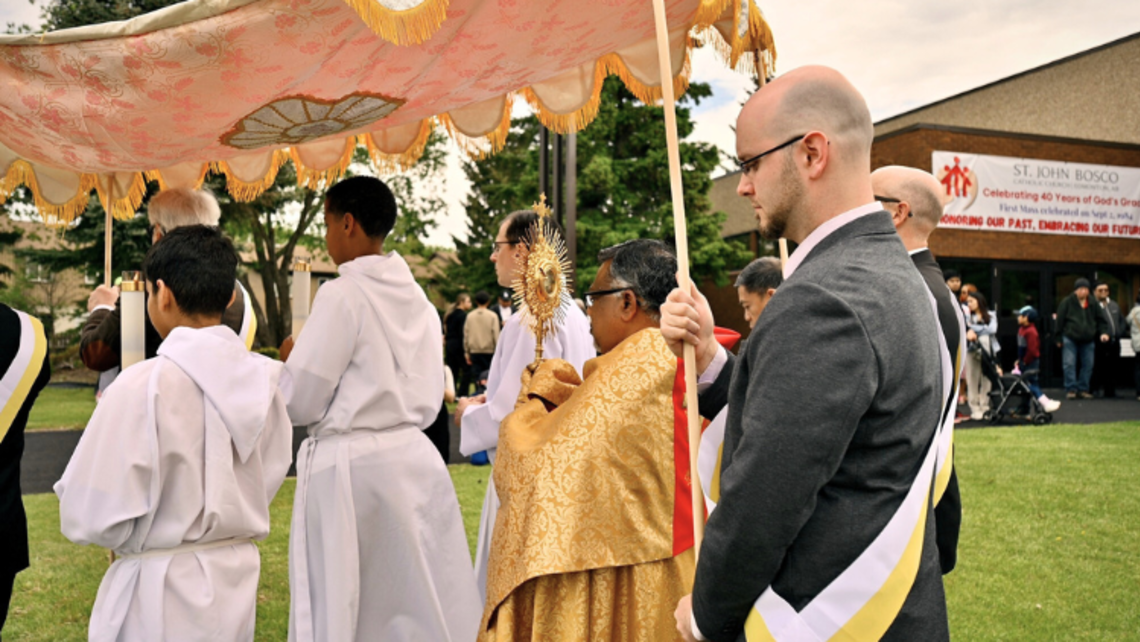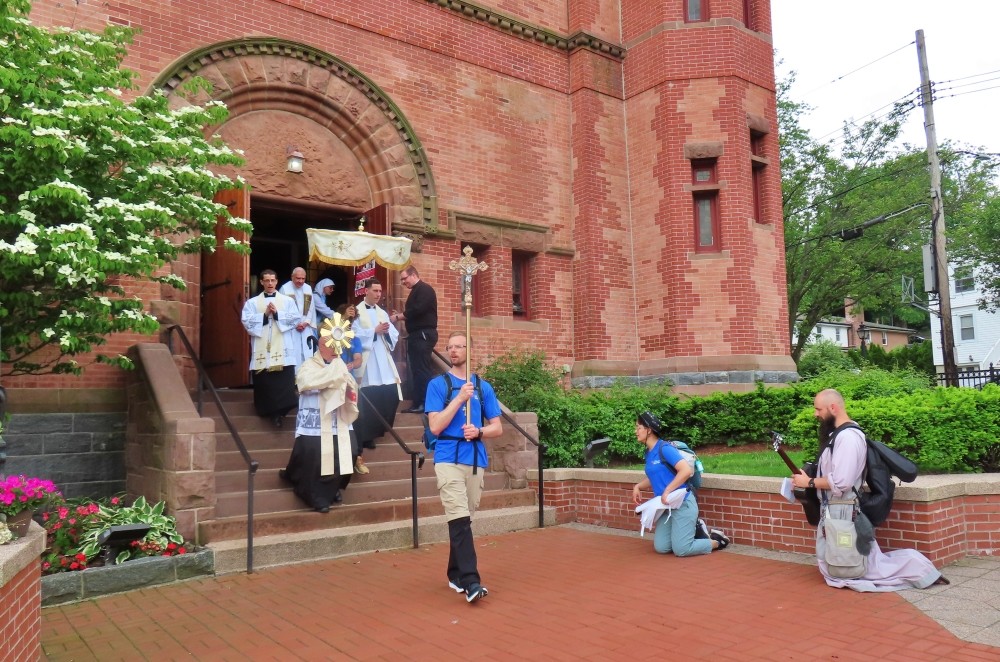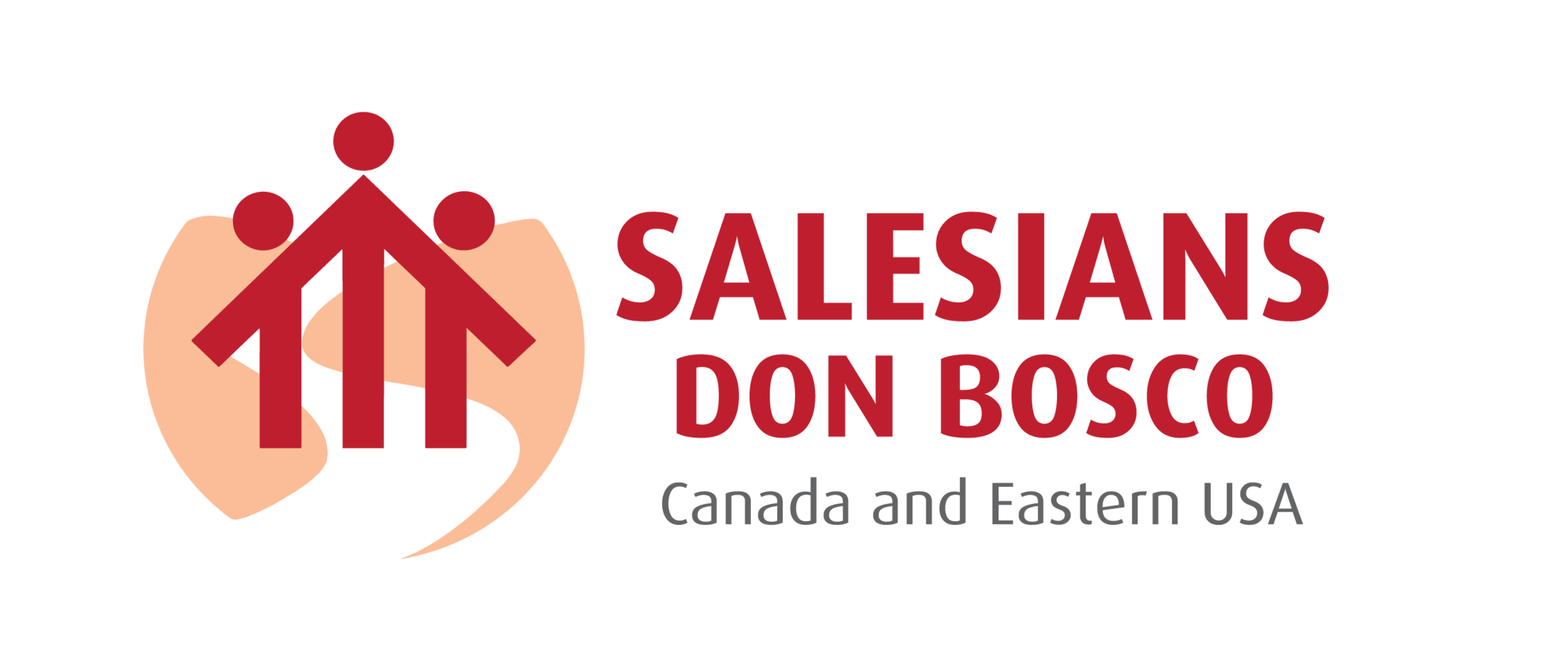
Over the last two decades or so, different surveys have indicated that in our two countries, increasingly fewer Catholics go to Mass on Sundays. In Canada, one survey suggested that, in 2022, only 14 percent of Catholics said that they go to Mass “once or twice a month or more often.” Eighteen percent said they only attend Mass a few times a year, and 67 percent said they “attend religious service rarely or never” (1). In the U.S., one survey discovered that, in 2023, as few as 17 percent of Catholics “attend Mass at least once a week,” and 26 percent go a few times a year. The same survey found that 35 percent of Catholics “rarely or never attend Mass” (2).
There are many reasons why some Catholics go to Mass and receive Communion while others do not. The scope of this reflection is not intended to explore the reasons. I simply would like to share a thought on how we, as a Salesian Family and Church ministers, might respond to this reality.
Some natural reactions can be, “Oh, the Church is in decline,” or “People just don’t care anymore,” or “People don’t believe in the Real Presence of Jesus in the Blessed Sacrament.” Some even insist on telling people that they commit a mortal sin for skipping Sunday Mass. The last approach is not likely to inspire people to go to Mass.

St. John Bosco Parish, Port Chester, NY.
The parish was the first stop in the
Archdiocese of New York of the
St. Elizabeth Ann Seton Route as part
of the National Eucharistic Pilgrimage.
Courtesy of Ms. Maria Massa
As Salesians, let’s renew Don Bosco’s Eucharistic love and practices. He loved Jesus in the Blessed Sacrament. And he inspired young people to receive Communion frequently.
We know that, during Don Bosco’s time, due to the influence of Jansenism, Catholics did not receive Communion as frequently, as we do nowadays. When John Bosco was a seminarian, the common practice was to go to confession every two weeks and to receive Holy Communion only on Sundays and on special feasts. Yet, he would try to receive Communion during the week. The sacrifice he would make was that, in order to receive Communion on a weekday, he would skip breakfast to go to Mass in the church next to the seminary, then go straight to class.
As a priest, to the young people at the Oratory, Don Bosco promoted regular confession and daily Communion. Daily communion was revolutionary in his time. He built his method of education and formation in the spiritual life of young people on these two practices. He wrote, “I have not found any other firm basis for education than frequent Confession and Communion.” Don Bosco was in love with the Eucharist, and he inspired young people to have the same love. Let us imitate him.
This year, on Corpus Christi, and in this time of Eucharistic Renewal in the U.S., in addition to Masses, some of our communities organized Eucharistic processions, exposed the Blessed Sacrament for Adoration, and developed reflections and homilies on the Eucharist. These are great ways to draw ourselves and others to Jesus, who remains with us always in the Blessed Sacrament.
(1) 2022, Angus Reid Institute
(2) 2023, CARA of Georgetown University






